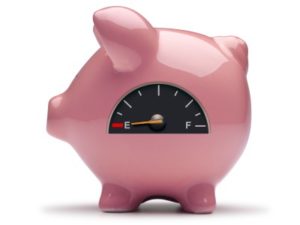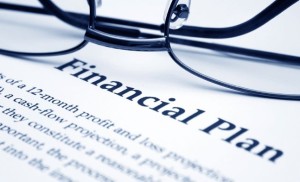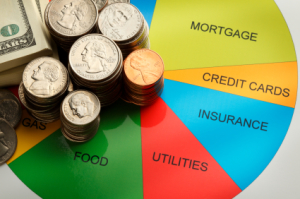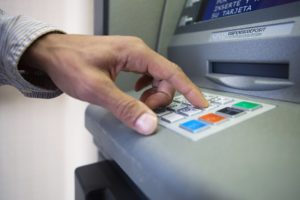Dear Liz: In these uncertain times, I decided I need to have cash on hand. I withdrew $500 in small bills from the bank and put it in a fireproof pouch. Is there a recommended amount of cash one should have available for emergencies?
Answer: The appropriate amount depends on how much you spend and how paranoid you are.
Many financial planners recommend storing a few hundred dollars somewhere safe in your home in case a widespread electrical outage — after an earthquake, for instance — affects ATMs and point-of-sale devices. The idea is that you’ll want enough cash to cover spending for a few days until the power comes back on. Smaller denominations are better than larger ones because you may have trouble finding anyone to give change for $50 or $100 bills.
Emergency preparedness sites tend to recommend storing even larger amounts — $1,000 to $3,000, or whatever you would need — in case access to ATMs and credit cards was affected for a few weeks.
Obviously, storing cash has its perils. The money could be lost, stolen or destroyed in a disaster. You’ll have to weigh those risks against the possibility of needing the cash, and make your own call.
 Today’s top story: Overcoming your fear of your college debt. Also in the news: 3 simple ways to boost your savings, tools and tactics to do your own financial planning, and overcoming your financial fears.
Today’s top story: Overcoming your fear of your college debt. Also in the news: 3 simple ways to boost your savings, tools and tactics to do your own financial planning, and overcoming your financial fears. Today’s top story: 5 wrong ideas you might have about financial planning. Also in the news: Bringing retirement savings goals closer, tips for back-to-school shopping, and how to kick your adult child out of the house.
Today’s top story: 5 wrong ideas you might have about financial planning. Also in the news: Bringing retirement savings goals closer, tips for back-to-school shopping, and how to kick your adult child out of the house.  Today’s top story: How much you should contribute to an IRA and how often. Also in the news: Creating a meaningful financial plan, what you should tell your financial advisor, and how to avoid drunk shopping binges.
Today’s top story: How much you should contribute to an IRA and how often. Also in the news: Creating a meaningful financial plan, what you should tell your financial advisor, and how to avoid drunk shopping binges. Today’s top story: Straightforward answers to your Roth IRA questions. Also in the news: Disney vacation pros share budgeting tips for trips, how to jumpstart your financial plan by ditching this phrase, and what to ask yourself before dipping into your emergency fund.
Today’s top story: Straightforward answers to your Roth IRA questions. Also in the news: Disney vacation pros share budgeting tips for trips, how to jumpstart your financial plan by ditching this phrase, and what to ask yourself before dipping into your emergency fund.  Today’s top story: The 4 best times to file taxes. Also in the news: What’s different in this year’s tax filings, 5 traits shared by the best financial planners, and could this be the year to buy a house?
Today’s top story: The 4 best times to file taxes. Also in the news: What’s different in this year’s tax filings, 5 traits shared by the best financial planners, and could this be the year to buy a house? Today’s top story: Don’t skip life insurance because of cost when having a baby. Also in the news: Wells Fargo could owe you money, crooks are targeting ATMs, and what you need to know about special needs financial planning.
Today’s top story: Don’t skip life insurance because of cost when having a baby. Also in the news: Wells Fargo could owe you money, crooks are targeting ATMs, and what you need to know about special needs financial planning.